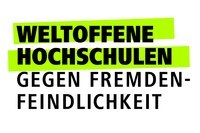Zum Profil

ResearchLab "Smarter Weinberg"
Study program: Master of Science: E-Government, Information Systems, Computer Science, Web and Data Science, Information Management / Digital Business Management, Computer Vision
Schedule: The kick-off meeting of the research lab will be organised once at least 6 people are registered in Klips. Regular formal meetings will take place every two to three weeks.
Registration in Klips: is currently open
Background
The Moselle valley in the district of Cochem-Zell, with its unique cultural landscape and almost 2000 years of wine growing tradition, is characterized by cultivated steep vineyards. In order to counteract the steady decline in vineyards in the Burg Cochem cultivation area and preserve the unique cultural landscape, the Smart Vineyard project aims to use 5G communication infrastructure as well as IoT sensory networks to facilitate work in the steep vineyards through future-proof digitalization and automation.This is intended to strengthen the regional winegrowers, who have so far mainly cultivated the terraces on the Moselle by hand. The developments within the project shall also enable a more ecological, sustainable and safer cultivation of wine in the steep slopes overall.
Annually recurring work such as soil cultivation, defoliation and spraying are among the most time-consuming tasks in steep-slope viticulture.
The Smart Vineyard project is developing holistic web-based applications for winegrowers that (partially) automate these recurring activities with the help of robotics, AI, IoT sensors and image recognition on the one hand, and support winegrowers by intelligently reusing the collected data via a central data platform on the other.
We deployed stationary sensors in different micro-environments in three vineyards that measure leaf wetness and temperature. Furthermore, one weather station is deployed that provides relevant weather data. The sensory data from vineyards enables farmers to make more informed decisions to mitigate weather-related risks of potentially evolving diseases. Moreover, we also use services like Vitimeteo, weather stations of the DLR and DWD to collect additional weather data and have some forecast data.
Research objectives and tasks
The research lab aims to validate sensory and forecast weather data to ensure accuracy, reliability, and quality of data, and to understand differences in the overall climate in the region vs. microclimate in certain positions in the trial vineyards. Validating sensory weather data involves comparing it with data from reference sources, such as established weather stations or commercial weather services and Vitimeteo. Analysing the local sensory data and correlating these with the overall weather-related data available shall also help us understand better the quality and reliability of overall forecasts and prognosis as available e.g. through general prognosis models.
Another aim is to create own forecast data and compare forecast accuracy with Vitimeteos forecasts and the actual ground truth. The following works are to be conducted as part of the research lab:
Data extraction and preprocessing: Get the data from the different data sources (from the Smarter Weinberg data platform as well as external data sources) and preprocess it in a way that the formats are similar and errors or missing data is dealt with.
Data Analysis: Analyse and correlate Smarter Weinberg sensory data with openly available weather data such as Vitimeteo, and validate the accuracy of our collected data where these deviate.
Research on forecast methods: Conduct research on different approaches for weather prediction, including machine learning approaches, statistical methods and other feasible approaches for forecasting.
Forecast implementation: Implement an own forecast method based on the findings of scientific research and validate its accuracy.
Project management, presentation of results, documentation and reporting: During the research lab, the team is responsible for conducting effective and efficient agile project management and project planning, including organisation of regular official meetings with the supervisors to present intermediate results and communicate progress. Along the research lab, the results, and methodical approaches of the work need also to be documented in the project handbook (report). At the end of the research lab, the overall project and its results need to be presented in a final presentation
Requirements for participation
Technical Background Knowledge: Knowledge of time series analysis, statistical analysis and ML approaches; Understanding of basic data formats like JSON, CSV, XML, ...
Basic Programming Skills: Knowledge of Python or R coding; Optional Flutter experience (for front-end visualization)
Data Analysis Skills: To efficiently work with the existing data, basic knowledge about data cleaning, machine learning, statistical analysis, data visualization and data transformation skills in python, R, SQL, … will be important
Project management and soft skills for presentation, documentation, teamwork
Very good communication skills in English (written and oral) and good communication skills in German.
Your benefit
As part of the research lab, students participate in a real-world data analysis project of a current research project
You gain a deeper insight into the practice of weather data analysis and the methods and tools for AI-/ML-based data analysis.





